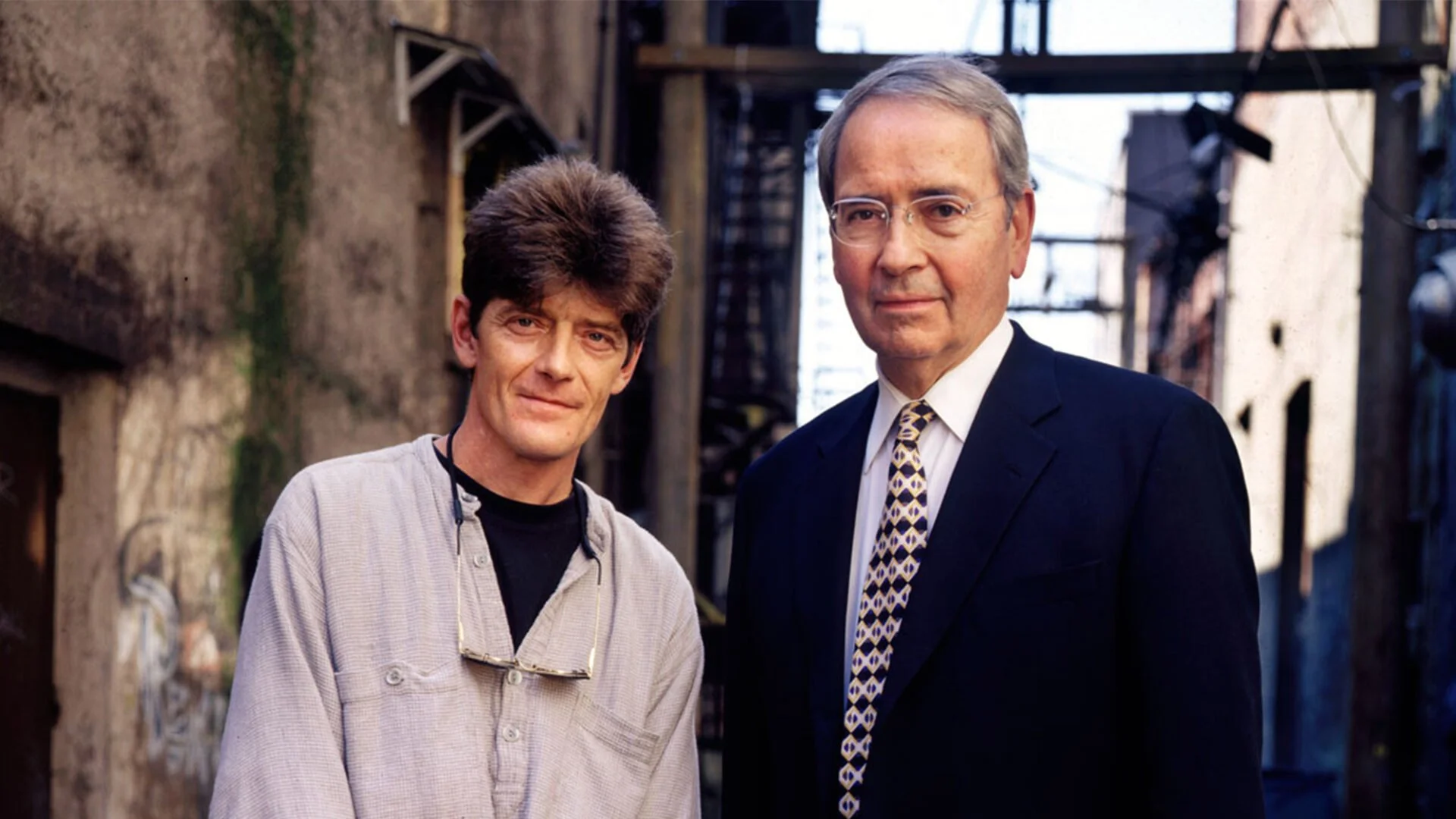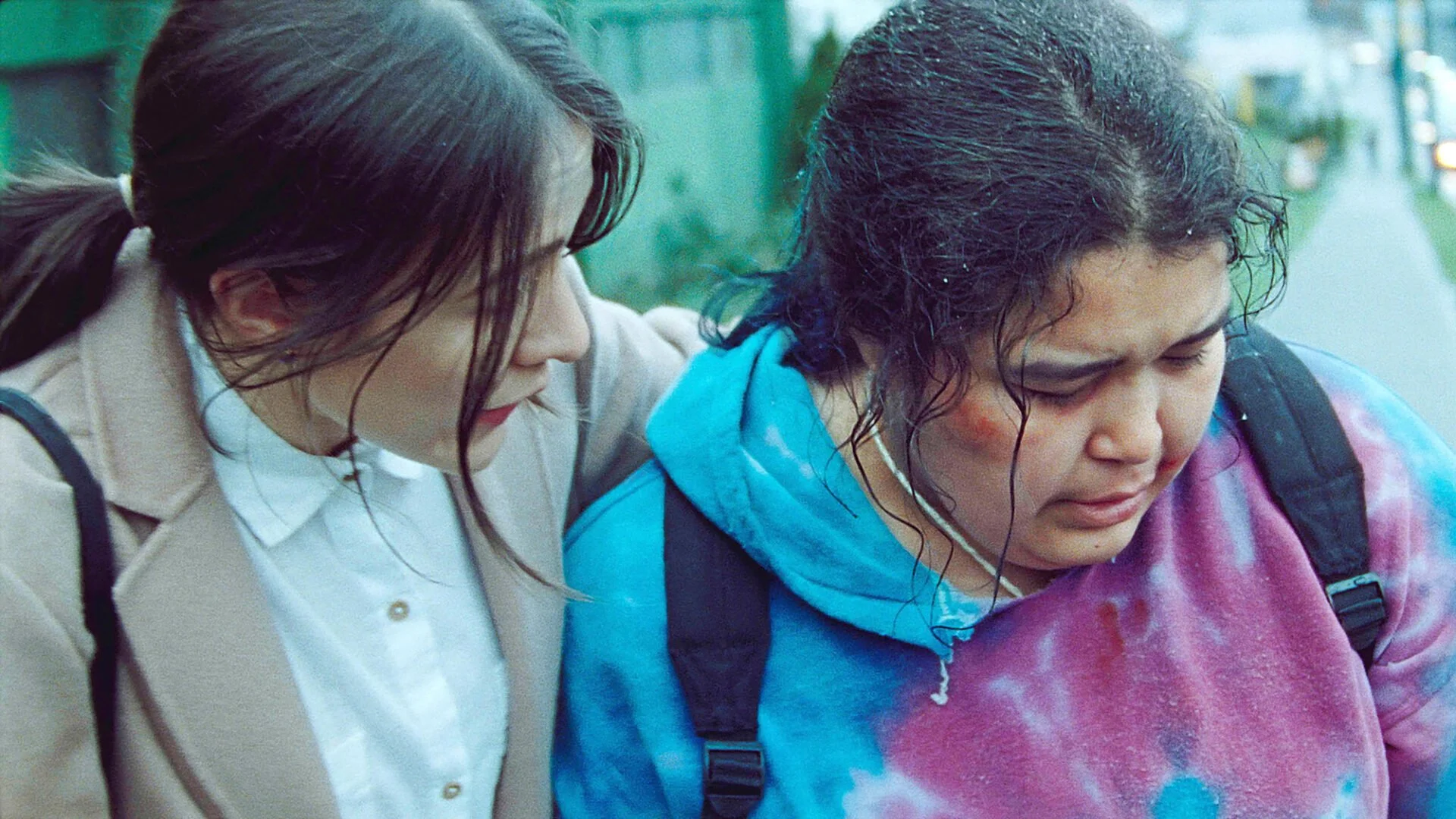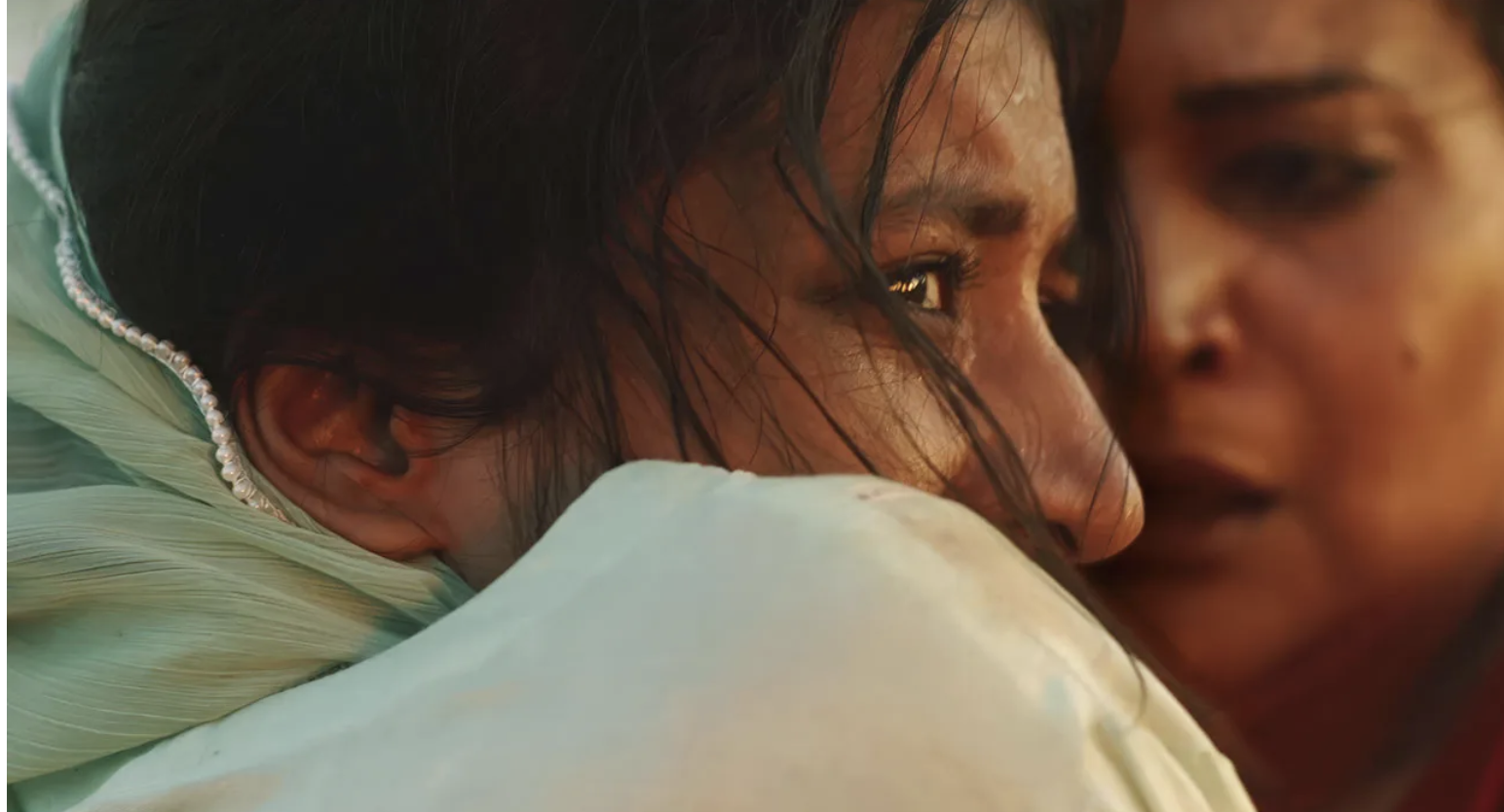Fix: The Story of an Addicted City kicks off sixth installment of BC film-history series at The Cinematheque
Documentary ode to late Mayor Philip Owen’s fight is part of The Image Before Us program that goes far beyond the province’s picturesque clichés
Dean Wilson and Philip Owen make unlikely allies in the 2002 documentary Fix: The Story of an Addicted City.
The Cinematheque presents Fix: The Story of an Addicted City on March 2 at 7 pm, and The Body Remembers When the World Broke Open on March 16 at 7 pm
AFTER A TWO-YEAR hiatus, a series celebrating the history of BC film, in all its complexity, is back at The Cinematheque with in-person screenings. And it’s opening with a documentary that’s as timely as it was when it premiered in 2002.
Fix: The Story of an Addicted City follows a group of activists and their unlikely ally, Vancouver mayor Philip Owen, on their struggle to establish safe-injection sites on the Downtown Eastside—throwing his political career into jeopardy. The screening is dedicated to Owen, who died in September last year.
Harry Killas, Emily Carr University associate professor of dynamic media, is curating this sixth installment of the series, called The Image Before Us. He says the opening documentary by Nettie Wild speaks to the current overdose crisis, not to mention the pandemic-ravaged state of the neighbourhood where it was shot.
“The sad part of the story is that Fix is more relevant than ever: we have proceeded to safe-injection sites, so that has been achieved, but the Downtown Eastside has capsized, and I don't know if anyone thought that was possible,” he tells Stir.
What would Owen have thought, for instance, about the fact that an almost unfathomable 2,224 people died in BC from suspected “illicit drug” overdoses in 2021?
Far from just having timely subject matter, the film displays the way handheld, pre-digital cameras, like the Sony PD150s used for this shoot, revolutionized documentary filmmaking at the time, Killas adds.
“You’ve got it in the palm of your hand, you've got incredible images and good sound capacity, and you don’t need a crew of five people,” he says. “I think Nettie shot a lot of the film herself, so it was an important moment in mobility, intimacy, access, and trust.”
Fix perfectly illustrates Killas’s approach to curating his history of BC film, which had its first installment in 2015. The mix of wider-known works and rare finds strives to go beyond the clichéd images of “super, natural” BC and into works that mine its political and social stories.
Rather than parochialism, “the series is trying to advance an argument for a history of film in BC and the stories that have not been addressed,” Killas explains.
That approach is inspired by BC poet, scholar, and director Colin Browne’s short documentary, “The Image Before Us”, built from historic archival footage promoting Vancouver as a natural playground by the sea, and a cheeky creation made to be shown at Expo 86. It pushed the viewer to look beyond manufactured images for the truth about this place.
Holding tight to that idea, and working with Browne as an advisor on the series named for his movie, Killas continues to build a nuanced chronology of film in this province. For this edition, he has also programmed the much more recent The Body Remembers When the World Broke Open for the second feature on the roster, March 16. The 2019 work, co-directed by Elle-Máijá Tailfeathers and Kathleen Hepburn, takes place over the course of a day on the East Side, and throws the spotlight on the new wave of independent filmmakers coming out of this province.
Elle-Máijá Tailfeathers and Violet Nelson in The Body Remembers When the World Broke Open.
“It was an instantly recognized and well-received film that made it out of BC,” Killas says. “And then of course there are other dimensions, such as the performance of the lead, Violet Nelson, who’s a nonactor. On the technical side, it was all shot in Super 16[mm] with the illusion of real time and a multidimensional spacial awareness, where they were handing off the camera and disguising the cuts. There was a real commitment to the kind of restraint they wanted to work with.”
Later in this spring’s programming, watch for a screening event around BC director Mina Shum’s first documentary, Ninth Floor, from 2015, about the 1969 occupation of what is now Concordia University’s ninth floor computer lab to protest racism in the Montreal school’s administration. And Victoria-born Atom Egoyan’s melancholic The Sweet Hereafter is also on the menu; Killas traces the local connections, saying, “It's based on a novel by an American that’s set in Vermont, adapted by a Toronto filmmaker from BC who transposed the setting to BC.”
Elsewhere in the series, Killas hints that there will be programs devoted to arts and culture, and some hidden gems gathered for an evening around the theme of whales and our West Coast ecology. (Watch The Cinematheque site for dates.)
Discussion is an integral part of all the screenings, featuring panels of filmmakers, crew members, film subjects, and experts on the issues in each film. The March 2 Fix event features Q&As with Philip Owen’s son Christian Owen, director Wild, film subjects Ann Livingston and Dean Wilson, and Donald MacPherson, executive director at the Canadian Drug Policy Coalition.
As we come out of the pandemic, it’s a time for the film community and film fans to reconnect, Killas says.
“It’s also about community building,” he points out. “There are not that many opportunities for the film community to gather. They’re working 24-7.”














